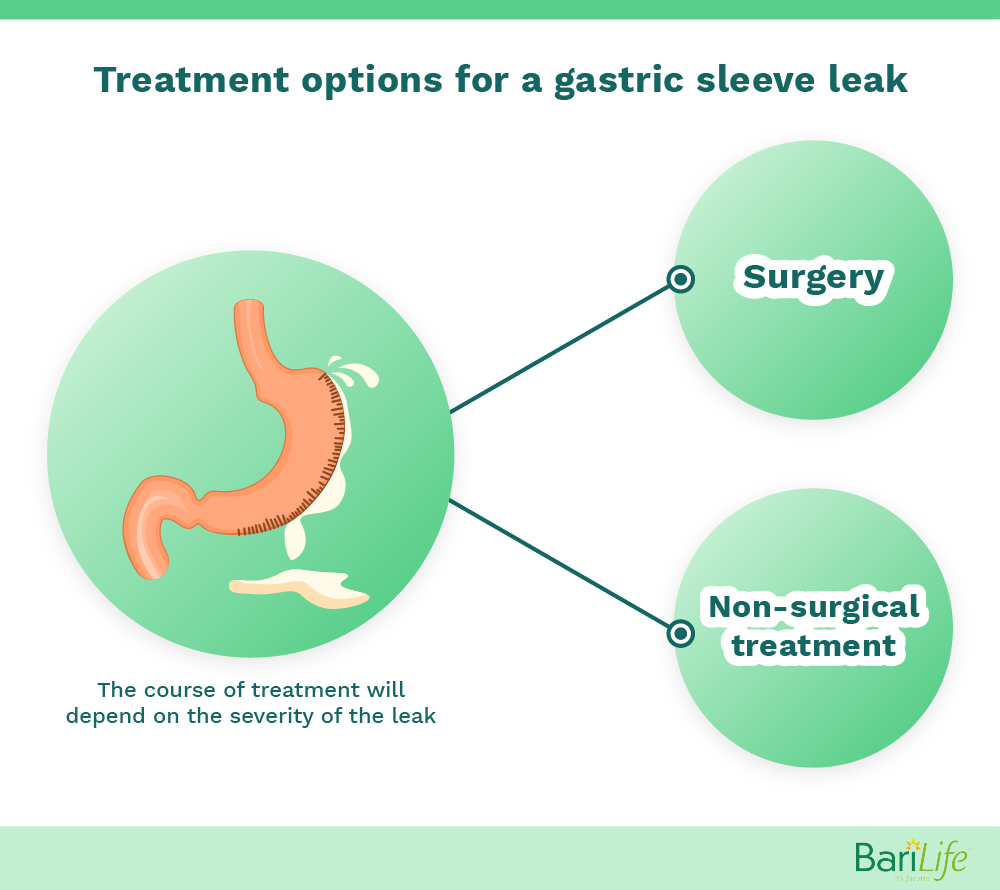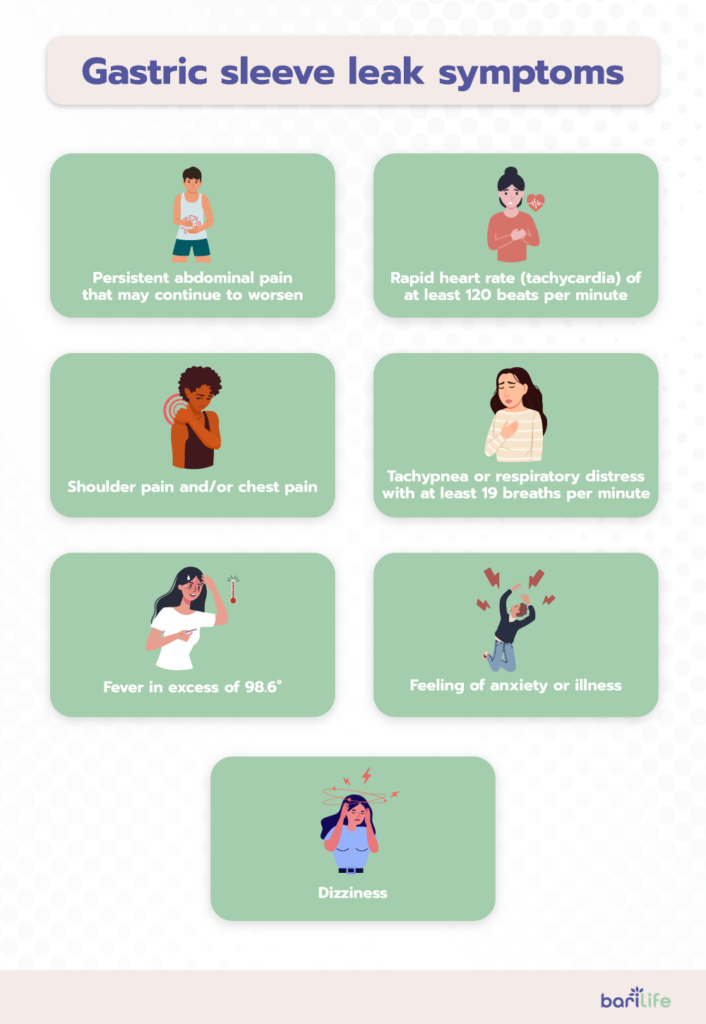Opting to undergo Weight Loss Surgery is a major decision that requires a significant commitment to lifelong lifestyle changes. While bariatric procedures like Gastric Sleeve Surgery are considered relatively low risk, complications can sometimes occur. One potential complication is a gastric sleeve leak.
A gastric sleeve leak involves a small hole or tears in the newly constructed stomach pouch, allowing acidic digestive fluids to escape into the abdominal cavity. Though uncommon, a leak can become a serious medical emergency requiring prompt treatment. As such, bariatric patients need to understand the signs and symptoms of a potential leak and seek immediate medical care if any are present.

There are a few potential causes for leaks after Gastric Sleeve Surgery:
Leaks most often occur within the first few weeks after surgery but can rarely happen months or even years later. Multiple health conditions, nutritional deficiencies, or complications during surgery may increase the risk. However, sometimes leaks occur spontaneously without an identifiable cause.
The symptoms of a gastric sleeve leak can vary but may include:
Some patients experience mild symptoms or none at all. Since early treatment is critical, promptly contact your bariatric surgeon if you notice any concerning signs or don’t feel well. They will evaluate your symptoms and order tests if a leak is suspected.
To check for a potential leak, your surgeon may first obtain blood tests for signs of infection, such as a high white blood cell count. Imaging tests like CT scans or abdominal X-rays can also help identify fluid collections or air pockets resulting from a leak.
Other diagnostic tests include:
Getting prompt medical attention and accurate testing is crucial for quick leak detection and treatment.
If a leak is confirmed, treatment will depend on its severity, symptoms, and overall health status. Possible treatment options include:
Even with treatment, leaks can become chronic and difficult to resolve. Close follow-up care and cooperation with your treatment team is imperative for the best results. Complete recovery is very likely if the leak is recognized early.

While not every leak can be prevented, the following can reduce your risk:
Seeking prompt care for concerning symptoms and staying in close contact with your bariatric surgery team can help achieve the best results if a leak does occur. While a scary complication, leaks are uncommon and treatable in most cases with early intervention.
Be the first to post comment!